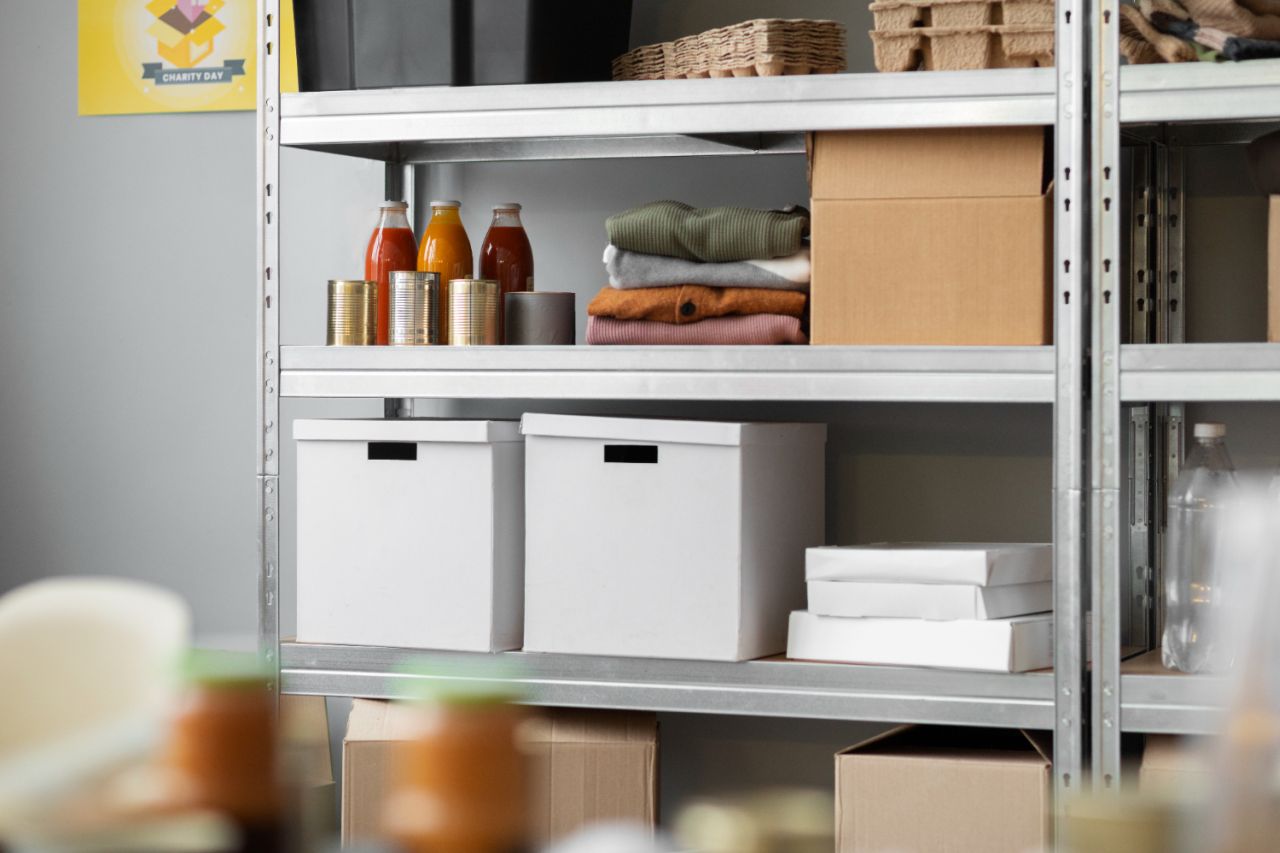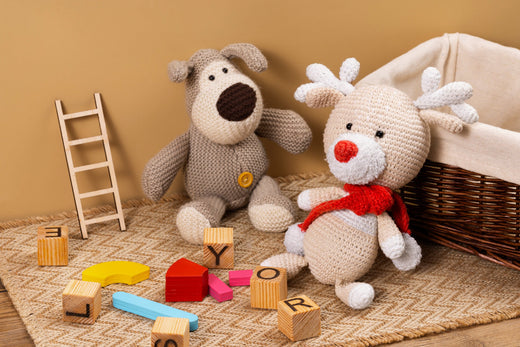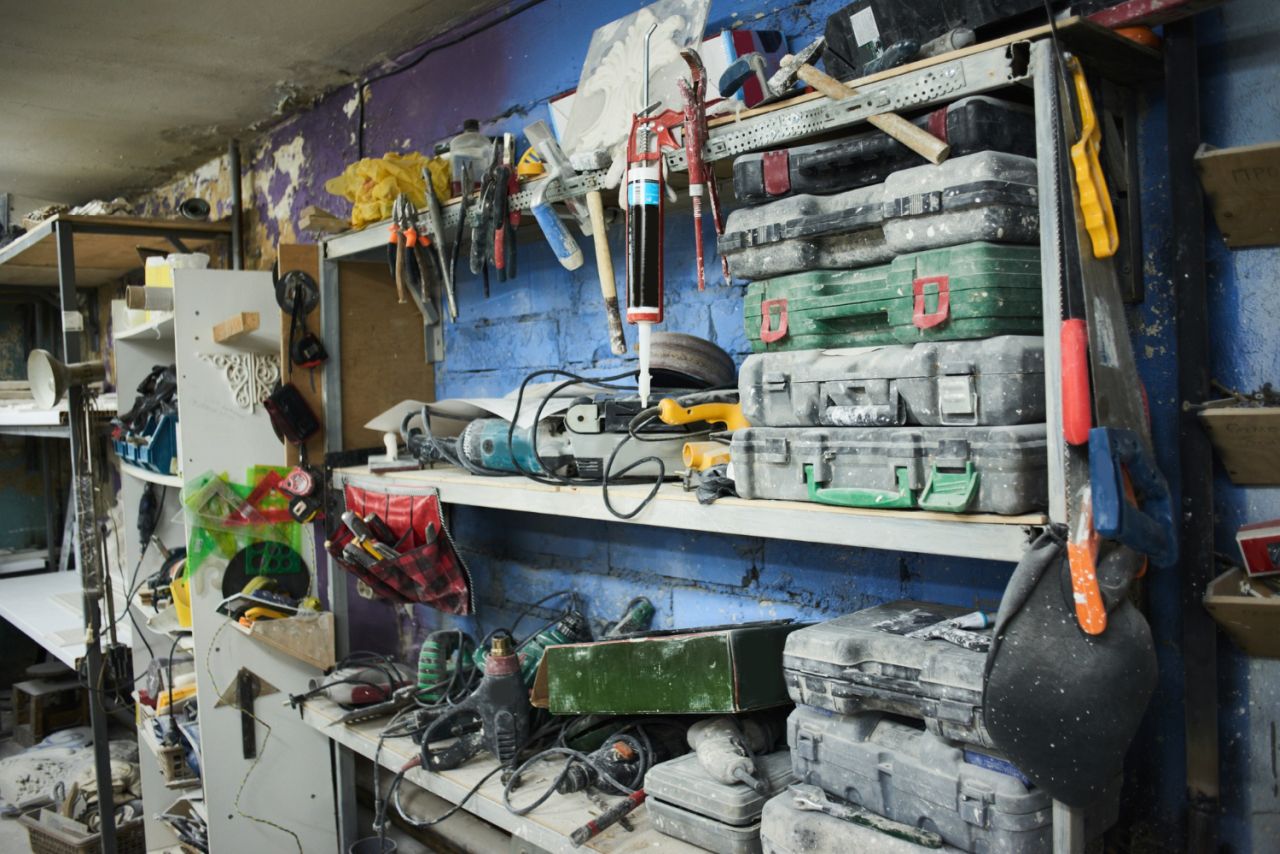Incorporating eco-friendly storage solutions into a home reduces environmental impact and promotes sustainable living and efficient organisation.
Here’s a guide on how to make storage greener, from selecting sustainable materials to repurposing everyday items.
With thoughtful choices, you can create an organised, functional, and environmentally responsible home.
Let's get straight to the point
Embrace eco-friendly storage to reduce environmental impact, conserve resources, and create an organised home.
Key tips include choosing sustainable materials like bamboo, organic cotton, and recycled plastic, focusing on durability, and repurposing items like shoe boxes and old crates.
Sustainable storage solutions for each room, from kitchen glass jars to bathroom bamboo shelves, make green living accessible.
Declutter responsibly by donating or recycling, use eco-conscious cleaning products, and dispose of items thoughtfully. By adopting these practices, you can enjoy a functional, earth-friendly home.
Choosing Sustainable Storage Solutions
Key Considerations
When choosing sustainable storage solutions, several factors should guide your decision:
- Material Sustainability: Opt for items made from recycled materials, rapidly renewable materials like bamboo, or biodegradable substances that won’t harm the environment after disposal.
- Durability and Lifespan: Long-lasting storage items reduce the need for frequent replacements, thus lowering overall waste.
- Energy Efficiency: Energy-efficient products, such as those requiring minimal maintenance, save money and resources over time.
- Environmental Impact: Consider the item’s full lifecycle, from production to disposal, to ensure it aligns with your eco-friendly goals.
- Repurposability: Choose items that can be reused or repurposed in different ways. This will allow for greater flexibility and reduce the need for new resources.
Eco-Friendly Storage Materials
Natural and Biodegradable Options
Sustainable materials are the foundation of eco-friendly storage:
- Bamboo: A fast-growing, rapidly renewable material, bamboo storage items like baskets or trays are ideal for green homes.
- Organic Cotton: For softer storage solutions, organic cotton is a natural, biodegradable choice for fabric storage bins or closet organisers.
- Recycled Plastic: Choosing recycled plastic storage solutions reduces the need for new plastic production, minimising pollution and resource use.
- Glass Containers: Perfect for kitchen storage, glass jars and containers are durable, reusable, and free from harmful chemicals.
- Old Wooden Crates: Repurposing wooden crates as storage bins or shelves can add rustic charm to your home while avoiding new resource consumption.
Repurposing and Upcycling
Creative Ways to Reuse Items
Repurposing and upcycling can make a significant impact on reducing waste:
- Shoe Boxes: Reuse sturdy shoe boxes to organise smaller items in drawers, closets, or office spaces.
- Old Jars and Containers: Glass jars from sauces or condiments make perfect storage containers for dry goods, spices, or office supplies.
- Wooden Pallets: Reclaimed pallets can be transformed into shelving, under-bed storage, or vertical gardening spaces.
- Donation Centres: When decluttering, donate usable items to local centres. This extends their life and reduces environmental impact.
Benefits of Sustainable Storage Solutions

Why Sustainable Storage Matters
Choosing eco-friendly storage solutions offers numerous advantages:
- Reducing Waste: Sustainable storage reduces the need for single-use or disposable items, contributing to less landfill waste.
- Environmental Impact: Opting for natural or recycled materials lessens the production of new resources, which helps lower environmental pollution and conserve energy.
- Energy Efficiency: Many eco-friendly storage products, such as energy-efficient appliances or reusable containers, reduce your home’s energy footprint.
- Saves Money: Reusable items and repurposed materials can save you money over time by reducing the need for frequent purchases.
- Promotes Green Living: Sustainable storage practices support a more eco-conscious lifestyle, benefiting your household and the environment.
Storage Solutions for Every Room
Eco-Friendly Options for a Greener Home
A green home can incorporate eco-friendly storage in every room. Here are some sustainable storage ideas by area:
- Kitchen: Store food in glass jars, recycled plastic containers, and stainless steel bins. Reusable food wraps made of organic cotton are a great alternative to plastic wraps.
- Bathroom: Opt for bamboo shelves, recycled glass jars for cotton balls or toiletries, and biodegradable baskets for organising supplies.
- Living Room: Use repurposed furniture, such as old wooden crates, for storage. Decorative baskets made from natural fibres can hold blankets or magazines.
- Bedroom: Organic cotton storage bags or fabric bins can help keep clothes organised in an eco-friendly way.
- Garage: To organise tools, reuse durable storage containers made from recycled materials, and opt for energy-efficient lighting to reduce energy consumption.
- Office: Recycled paper organisers and repurposed filing systems reduce waste while keeping your workspace organised.
Tips for a More Sustainable Home
Decluttering and Organising Responsibly
Organising sustainably starts with decluttering responsibly:
- Donate Unwanted Items: Take items in good condition to donation centres rather than discard them.
- Recycle Properly: To reduce environmental pollution, follow local guidelines for recycling items, especially electronics.
- Repurpose Items: Before buying new storage items, look for ways to repurpose materials you already have, reducing the need for new resources.
- Invest in Multi-Use Products: Choose items with multiple uses, such as stackable bins or versatile containers that adapt to various storage needs.
Maintaining Eco-Friendly Storage
Care Instructions and Disposal Methods
Maintaining eco-friendly storage solutions ensures they last as long as possible:
- Cleaning Products: Use non-toxic, eco-conscious cleaning products on natural materials like bamboo and organic cotton. This helps preserve their durability without introducing harmful chemicals.
- Avoid Frequent Replacements: Prioritise durable items over those that wear out quickly. For example, invest in stainless steel or glass containers instead of plastic.
- Proper Disposal: When it’s time to dispose of an item, follow proper recycling or composting guidelines to minimise environmental impact. Recycle glass and plastic, and compost biodegradable materials.
Conclusion
Embracing Sustainable Storage for a Greener Home
Embracing eco-friendly storage solutions is a step towards a more sustainable home. You can reduce waste, conserve resources, and create a functional space by choosing natural materials, repurposing items, and organising thoughtfully.
Sustainable storage solutions benefit the environment and contribute to a more organised, responsible lifestyle that prioritises the health of our planet.
Frequently Asked Questions
What Are Some Eco-Friendly Materials to Look for in Sustainable Storage Solutions?
Look for materials like bamboo, organic cotton, recycled plastic, and glass. These materials are renewable, durable, and biodegradable or recyclable, making them ideal for eco-friendly storage.
How Can I Repurpose Common Household Items as Storage Solutions?
Items like shoe boxes, glass jars, and wooden crates can be repurposed for storage. Old jars are great for kitchen storage, and shoe boxes can be used to organise drawers or office supplies.
Why Is It Important to Choose Durable Storage Items?
Durable storage items reduce the need for frequent replacements, minimising waste and saving resources over time. By reducing production demand, they also help lower the overall environmental impact.
What Are Eco-Friendly Storage Options for Different Rooms in My Home?
In the kitchen, glass jars and reusable wraps are excellent choices. In bathrooms, use bamboo or recycled plastic, and in living rooms and bedrooms, use repurposed crates or natural fibre baskets. Durable containers can help keep garages and offices organised.
How Can I Dispose of Eco-Friendly Storage Items Responsibly?
When storage items expire, recycle materials like glass and plastic according to local guidelines or compost biodegradable items like bamboo and organic cotton. This approach helps reduce waste and pollution.





